For decades now, David Duchovny hasn’t been afraid to poke a little fun at his own image. The veteran TV star has peppered his career with roles in which he satirizes the nature of being “David Duchovny,” most recently seen in the first season of the Netlfix series The Chair, in which he satirized himself with aching attention to details like his recent literary and musical efforts.
But as he tells Consequence, taking on the role of “David Duchovny” was a very different experience from his role in The Bubble, the new Netflix comedy directed and co-written by Judd Apatow. The Bubble tracks a pandemic-era cast and crew assembling to film the latest installment of a fictional blockbuster franchise called Cliff Beasts 6, with Duchovny playing Dustin Mulray, one of the film’s stars, whose complicated relationship with ex-wife Lauren (Leslie Mann, Apatow’s real-life wife) is just one of the difficulties faced by the Cliff Beasts production team.
Duchovny wouldn’t say which actors in particular he was satirizing with his performance — aside from himself. Though as he explains below in this Zoom interview, transcribed and edited for clarity, playing Dustin was a different experience from his past experience in playing “David Duchovny,” which he did perhaps for the first time while guest-starring on The Larry Sanders Show, the groundbreaking HBO comedy which gave many, including a young Apatow, their start.
He also reveals some of his favorite moments of improv that were left on the cutting room floor, and what it was like learning the film’s many dance sequences. But things eventually get a little deeper than that.
To begin, talk to me about how you got involved with The Bubble?
We’ve been circling each other for years and I’ve always loved his stuff, and actually I did a movie called The TV Set, that was loosely based on Judd’s experience doing Freaks and Geeks. So I’ve played Judd, and he doesn’t hold that against me so much. He just called out of the blue and said he was doing this thing — he had this idea to do a movie during the pandemic about the conditions of doing a movie during the pandemic, and it sounded good. I wanted to be in his world.
In terms of that, did you know going in what role he wanted you for?
No, he said there were, like, five or six leads, and he didn’t really give me a choice of who I was going to play — he had the character that was going to be playing opposite his wife, and he trusted me.
Did you have a sense of him wanting you to play him again?
Oh, absolutely not. This was an actor who — and I think I’ve been like this myself — wants this type of mass entertainment you’re doing to have an effect, or mean something. My character in The Bubble wants it to be like Don’t Look Up. But he wants to do it like Jurassic Park. So that’s his struggle — yes, I’m getting paid all this money, yes, we’re making The Fast and the Furious 25 or whatever we’re doing, but we’re going to change the world with this. We’re gonna get through to people.
It’s a similar message from Don’t Look Up, he wants to get a message through about climate change and disrespect to the planet, and stuff like that. And I get it. But he’s a figure of fun in this case. He’s not Adam McKay in this case. He’s something else.
Aside from your own experience, were the other actors you were looking to as a potential model?
Oh, sure. But I would never say, because I would never want to give away those trade secrets. But I don’t have to look that far. I understand the struggle of “Can’t this mean something? Can’t it also have an effect in the real world that’s positive?”
How do you feel about the overall message? The Bubble seems like it’s in this really fascinating position of acknowledging that the idea that a movie can change the world may be a little silly, but at the same time, everyone involved did get together to make a movie to try to say something.
Yeah, if only we treated the Earth with the same respect we treated movie franchises, we’d be okay. I think that’s a good question, because Judd was very, very particular about Dustin not ever drawing a line between the pandemic and disrespect and destruction in the modern age. Because it isn’t Don’t Look Up. It isn’t that message. It is a piece of entertainment. So it’s really not that movie.
And I think it’s best that way, because that would weigh it down, you know? I keep on mentioning Don’t Look Up, because that’s an interesting phenomenon where you have a movie that wants to entertain and be funny from time to time, but also is weighted with this message. Whether or not you think it succeeded, that’s not what Judd was trying to make.
the-bubble-pedro-pascal-leslie-mann-david-duchovny
” data-image-caption=”
The Bubble (Netflix)
” data-medium-file=”https://consequence.net/wp-content/uploads/2022/04/the-bubble-pedro-pascal-leslie-mann-david-duchovny.jpg?quality=80&w=300″ data-large-file=”https://consequence.net/wp-content/uploads/2022/04/the-bubble-pedro-pascal-leslie-mann-david-duchovny.jpg?quality=80&w=1024″ loading=”lazy” class=”size-large wp-image-1200338″ src=”https://consequence.net/wp-content/uploads/2022/04/the-bubble-pedro-pascal-leslie-mann-david-duchovny.jpg?quality=80&w=1024&resize=1031%2C580&strip” alt=”the bubble pedro pascal leslie mann david duchovny David Duchovny Gets a Little Deep About Working With Judd Apatow on The Bubble” width=”100%” srcset=”https://consequence.net/wp-content/uploads/2022/04/the-bubble-pedro-pascal-leslie-mann-david-duchovny.jpg 3840w, https://consequence.net/wp-content/uploads/2022/04/the-bubble-pedro-pascal-leslie-mann-david-duchovny.jpg?resize=150,63 150w, https://consequence.net/wp-content/uploads/2022/04/the-bubble-pedro-pascal-leslie-mann-david-duchovny.jpg?resize=300,126 300w, https://consequence.net/wp-content/uploads/2022/04/the-bubble-pedro-pascal-leslie-mann-david-duchovny.jpg?resize=768,322 768w, https://consequence.net/wp-content/uploads/2022/04/the-bubble-pedro-pascal-leslie-mann-david-duchovny.jpg?resize=1024,429 1024w, https://consequence.net/wp-content/uploads/2022/04/the-bubble-pedro-pascal-leslie-mann-david-duchovny.jpg?resize=1536,643 1536w, https://consequence.net/wp-content/uploads/2022/04/the-bubble-pedro-pascal-leslie-mann-david-duchovny.jpg?resize=2048,858 2048w” sizes=”(max-width: 1024px) 100vw, 1024px”>
The Bubble (Netflix)
[flexi-common-toolbar] [flexi-form class=”flexi_form_style” title=”Submit to Flexi” name=”my_form” ajax=”true”][flexi-form-tag type=”post_title” class=”fl-input” title=”Title” value=”” required=”true”][flexi-form-tag type=”category” title=”Select category”][flexi-form-tag type=”tag” title=”Insert tag”][flexi-form-tag type=”article” class=”fl-textarea” title=”Description” ][flexi-form-tag type=”file” title=”Select file” required=”true”][flexi-form-tag type=”submit” name=”submit” value=”Submit Now”] [/flexi-form]



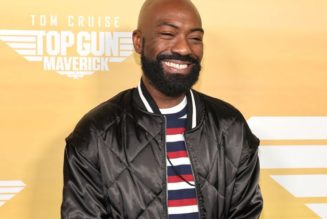
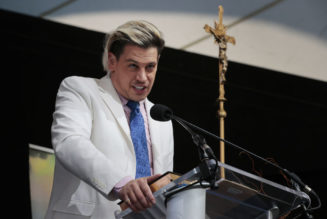
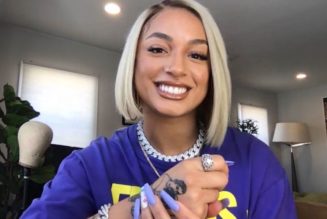
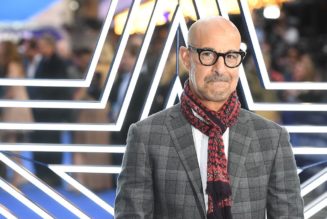
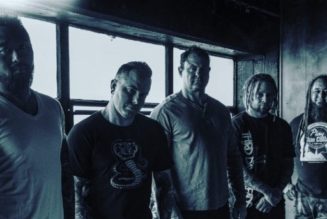

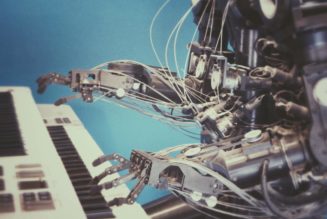
Tagged: Alternative Music, David Duchovny, FEATURES, Film, INTERVIEWS, Judd Apatow, music blog, The Bubble, TV